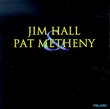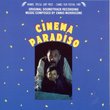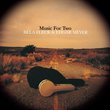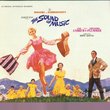| All Artists: Tavener, Neary, BBC Symphony Orchestra Title: Akathist of Thanksgiving Members Wishing: 0 Total Copies: 0 Label: Sony Original Release Date: 1/1/1994 Re-Release Date: 9/13/1994 Genre: Classical Styles: Opera & Classical Vocal, Sacred & Religious Number of Discs: 1 SwapaCD Credits: 1 UPC: 074646444627 |
Search - Tavener, Neary, BBC Symphony Orchestra :: Akathist of Thanksgiving
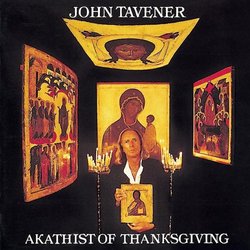 | Tavener, Neary, BBC Symphony Orchestra Akathist of Thanksgiving Genre: Classical
Tavener, more than other neospiritualists, shuns harmonic movement and thematic development. He especially favors repetition (as does the liturgy of Eastern Orthodoxy, his primary influence), often using only changes in sc... more » |
Larger Image |
CD DetailsSynopsis
Amazon.com Tavener, more than other neospiritualists, shuns harmonic movement and thematic development. He especially favors repetition (as does the liturgy of Eastern Orthodoxy, his primary influence), often using only changes in scoring to provide variety. With such a style, it takes a lot of inspiration to keep an hour-long composition interesting--and that's what's missing in Akathist of Thanksgiving. There's an occasional attractive passage for two countertenors (invariably in parallel thirds), but the chorus and orchestra seem to drone endlessly on a major chord. Staying conscious is actually a challenge for a listener. (By the way, photos of the composer looking soulful among icons and candles are becoming intolerable.) Tavener is at his best in shorter works--try the Innocence CD or the gorgeous pieces on Ikos. --Matthew Westphal Similarly Requested CDs
|
Member CD ReviewsReviewed on 12/9/2006... Engagingly gothic compositions with some powerful choral work by Westminster Abbey Choir and BBC Singers. 1 of 1 member(s) found this review helpful.
CD ReviewsSay you don't care for it, but don't question inspiration! Into | everywhereandnowhere | 11/26/2003 (4 out of 5 stars) "My god, the review that Amazon provided for this album listing is the most snobbish editorial review I've ever seen on this website. What we have hear is a case of a pair of western ears that are way too stuck on western classical notions of "harmonic movement" and "thematic development." I love western classical music, but I also love "eastern classical" and "ancient" music, and if you judge all music in terms of western classical form, you're really missing something. This music is intended to evoke a certain spiritual state. It's not so much a question of "staying conscious" when listening to music like this, but "raising consciousness"--an esoteric concept to too many westerners. Say you don't like it, or you don't get it, but don't "rip it," on the basis that it doesn't fit into your little box of ideas of what music should sound like, and what its purpose should be.As far as the composer's inspiration is concerned, yes, there are come cases when you can listen to a piece of music and tell pretty quickly that the only source of inspiration for an artist was a contractual obligation or money. However, in this particular case, I don't think there's any basis whatsoever for questioning the composer's inspiration. Perhaps his inspiration was something a bit beyond the reviewer's grasp. As far as the cover art, yes, it's cheesy but that's just this particular recording label. Sony's long been known for poor cover art, poor album documentation, and endlessly reshuffling and reissuing their catalog.I don't listen to this piece often, but on the couple of times a year when I come back to it, I always find it enjoyable and calming. Even if one isn't going to become totally steeped in it, or meditate to it, it makes a very good antidote for a tense mood; or a backdrop for a contemplative mood, or for a gray, misty morning. As someone who appreciates eastern music, I like Tavener's use of modes; and I like the way the music seems to be in a repeated state of moving from darkness to light, like the sun being obscured by clouds and then emerging from them again, without being annonyingly minimalistic. If you listen to music like this when you're tired, it might just put you to sleep...but what's wrong with that? Fellow reviewers, professional or otherwise, listen to music from a place a little deeper than just the ear drums, before you go turning people off on something they might really enjoy. If someone asked me to recommend a "chant" CD, and wasn't insisting on authentic Gregorian chant, I would not hesitate to recommend this one." A rare and remarkable work Into | 06/11/1999 (4 out of 5 stars) "My initial reaction to "Akathist" was 'wow!' That reaction has not changed, although I must say that I have only ever listened through the entire CD (non-stop) on one occasion. Occasion is certainly the flavour of the piece- written for the occasion of the Orthodox Millennium in 1988, this is one of Tavener's most unconditional statements of faith. Taking as his text the poetry of Archbishop Gregory Petrov, he creates a piece that packs an immense amount of punch with a predictably small amount of material. At times, it does chafe that this is a minimalist composition- 77 minutes is a long time (in fact, according to the booklet, the actual work is just a fraction too long to fit on one CD and had to be edited) and yet there seems to be a completely regular pattern to the work that can start to be a bit boring- tolling bells, glissandi from the (string) orchestra in the loudest sections, scalar motion in most vocal and instrumental lines, and predictable harmonies. Nevertheless, there are many moments in this work that are splendidly ethereal- Ikos 1 (track 1), Kontakion 2 (track 2), and Ikos 9 (track 9) are the most obvious examples of some truly haunting harmonies. Perhaps the true appeal of this recording lies not so much in the music but in its execution. It has to be said that Westminster Abbey Choir and the BBC Singers go very well together, and Martin Neary (as yet the only conductor other than Tavener himself to direct this work) does a magnificent job. This was recorded in live performance (which gives it an extra dimension) and yet the quality of balance between soloists and choir is unfailingly sharp. There are places when the orchestra drowns out the choir (Ikos 9 springs to mind), and one of the most solemn moments (at the end of Kontakion 9) is spoiled by someone coughing repeatedly. Still, this is a CD that I play regularly, and I think that all Tavener fans should have it in their collection."
|

 Track Listings (10) - Disc #1
Track Listings (10) - Disc #1

